|
Books Should Be Free Loyal Books Free Public Domain Audiobooks & eBook Downloads |
|
|
Books Should Be Free Loyal Books Free Public Domain Audiobooks & eBook Downloads |
|
Top Authors |
|---|
|
Book type:
Sort by:
|
By: Dora Sigerson Shorter (1866-1918) | |
|---|---|
 Old Maid (Shorter)
Old Maid (Shorter)
Dora Maria Sigerson Shorter was an Irish poet and sculptor, who after her marriage in 1895 wrote under the name Dora Sigerson Shorter. She was born in Dublin, Ireland, the daughter of George Sigerson, a surgeon and writer, and Hester (née Varian), also a writer. She was a major figure of the Irish Literary Revival, publishing many collections of poetry from 1893. Her friends included Katharine Tynan, Rose Kavanagh and Alice Furlong, writers and poets. | |
By: Dora Sigerson Shorter (1866-1918) | |
|---|---|
 The Story and Song of Black Roderick
The Story and Song of Black Roderick
| |
By: Henry Vizetelly | |
|---|---|
 California
California
Vizetelly, writing under the pseudonym J. Tyrwhitt Brooks, recalls an expedition to California he took between 1847-1848 . Originally, he planned to enlist as a surgeon for the US Army during the Mexican war, but conflicts had ended by the time he applied. In a quick change of plans, he joined a group of prospectors on their way to the newly found gold fields of California. While he might not find service in the military, his training as a physician made him a valuable addition to the ragtag team of explorers... | |
 Facts About Champagne and Other Sparkling Wines
Facts About Champagne and Other Sparkling Wines
| |
By: Aristophanes (446BC - 385BC) | |
|---|---|
 Lysistrata
Lysistrata
Lysistrata read by the Classics Drama Company at DePaul. The Classics Drama Company at DePaul is a new gathering of Thespians and Classicists dedicated to performing and understanding ancient literature. If you live in Chicago and attend DePaul University, we welcome new additions to our group. Contact Dr. Kirk Shellko (kshellko@depaul.edu), if interested.First performed in classical Athens c. 411 B.C.E., Aristophanes’ Lysistrata is the original battle of the sexes. One woman, Lysistrata, brings together the women of all Greece, exhorting them to withhold sexual contact from all men in order that they negotiate a treaty... | |
By: E. T. C. (Edward Theodore Chalmers) Werner (1864-1954) | |
|---|---|
 Myths and Legends of China
Myths and Legends of China
| |
By: Richard Barnum | |
|---|---|
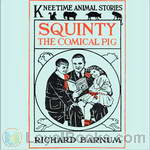 Squinty the Comical Pig
Squinty the Comical Pig
"This comical children's tale about the funny adventures of a funny pig written by an unknown author. The publisher has hired authors to write children's tales, and gave them "house names". The "name" of the author who wrote this tale is Richard Barnum. It became very successful, the most well known of Richard Barnum's tales. So, if you want to laugh a little, even if you are not a child, read this book". | |
By: William E. B. Du Bois (1868-1963) | |
|---|---|
 Darkwater Voices from Within the Veil
Darkwater Voices from Within the Veil
| |
 The Negro
The Negro
| |
By: Ulysses S. Grant (1822-1885) | |
|---|---|
 The Memoirs of General Ulysses S. Grant, Part 1
The Memoirs of General Ulysses S. Grant, Part 1
| |
By: William E. B. Du Bois (1868-1963) | |
|---|---|
 The Conservation of Races
The Conservation of Races
| |
 The Conservation of Races The American Negro Academy. Occasional Papers No. 2
The Conservation of Races The American Negro Academy. Occasional Papers No. 2
| |
By: Ulysses S. Grant (1822-1885) | |
|---|---|
 State of the Union Address
State of the Union Address
| |
By: Watkin Tench (1758-1833) | |
|---|---|
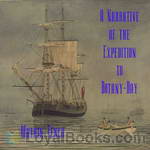 A Narrative of the Expedition to Botany-Bay
A Narrative of the Expedition to Botany-Bay
Watkin Tench was an officer of the British Marines in the First Fleet to settle NSW. This is an interesting and entertaining account of his experiences during that time (Introduction by Tabithat) | |
 A Complete Account of the Settlement at Port Jackson
A Complete Account of the Settlement at Port Jackson
| |
By: Michael Faraday (1791-1867) | |
|---|---|
 The Chemical History of a Candle
The Chemical History of a Candle
The Chemical History of a Candle is a series of 6 lectures on chemistry presented to a juvenile audience in 1848. Taught by Michael Faraday - a chemist and physist, and regarded as the best experimentalist in the history of science - it is probably the most famous of the Christmas Lectures of the Royal Society. Taking the everyday burning of a candle as a starting point, Faraday spans the arc from combustion and its products, via the components of water and air (oxygen, hydrogen, nitrogen, carbon), back to the type of combustion that happens in the human body when we breathe... | |
 Experimental Researches in Electricity, Volume 1
Experimental Researches in Electricity, Volume 1
| |
By: Dudley Landon Vaill (1873-?) | |
|---|---|
 The County Regiment
The County Regiment
A sketch of the second regiment of Connecticut volunteer heavy artillery, originally the Nineteenth Volunteer Infantry, in the Civil War. | |
By: Harold Frederic (1856-1898) | |
|---|---|
 The Damnation of Theron Ware
The Damnation of Theron Ware
The Damnation of Theron Ware (published in England as Illumination) is an 1896 novel by American author Harold Frederic. It is widely considered a classic of American realism. The novel reveals a great deal about turn-of-the-century provincial America, religious life, and the depressed state of intellectual and artistic culture in small towns.The novel centers on the life of a Methodist pastor named Theron Ware who has recently moved to a fictional small town in the Adirondack Mountains of upstate New York, which Frederic modeled after Utica, New York... | |
 In the Valley
In the Valley
| |
 The Market-Place
The Market-Place
| |
By: Thornton Jenkins Hains | |
|---|---|
 Mr. Trunnell, Mate of the Ship “Pirate”
Mr. Trunnell, Mate of the Ship “Pirate”
This is the tale of a perilous voyage aboard a clipper ship told by the second mate. He looks up to Trunnell, the first mate, who somehow manages to hold things together between a murdering former captain, a captain who may not actually be a captain, and a crew inclined to mutiny. This all leads to a surprising and satisfying ending. The author, Hains, wrote frequently of the sea. He is the author who (under a pen name) had a story on the newsstands about a liner hitting an iceberg and sinking, while Titanic was doing precisely that! | |
By: Elizabeth Stuart Phelps (1844-1911) | |
|---|---|
 A Lost Hero
A Lost Hero
| |
 Avery
Avery
| |
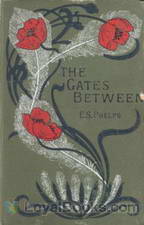 The Gates Between
The Gates Between
| |
 Gypsy Breynton
Gypsy Breynton
| |
 Men, Women, and Ghosts
Men, Women, and Ghosts
| |
 Gypsy's Cousin Joy
Gypsy's Cousin Joy
| |
 The Supply at Saint Agatha's
The Supply at Saint Agatha's
| |
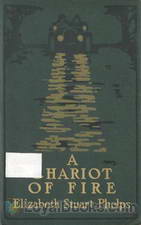 A Chariot of Fire
A Chariot of Fire
| |
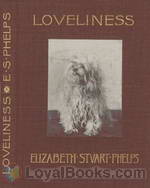 Loveliness A Story
Loveliness A Story
| |
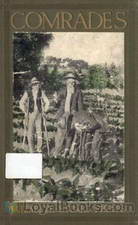 Comrades
Comrades
| |
By: Percy Keese Fitzhugh (1876-1950) | |
|---|---|
 Pee Wee Harris
Pee Wee Harris
Percy Keese Fitzhugh (September 7, 1876 - July 5, 1950) was an American author of nearly 100 books for children and young adults. The bulk of his work revolves around the fictional town of Bridgeboro, New Jersey and has a scouting theme. One of his major characters was Pee-Wee Harris. The title, Pee-Wee Harris, was the first in a series of 13 Pee-Wee Harris books. Pee Wee is just that; small in stature but huge in heart and ever so loyal as a scout should be. In the first installment, Pee-Wee visits his Aunt Jamsiah and Uncle Eb in a small New Jersey backwoods village called Everdoze... | |
 Tom Slade, Motorcycle Dispatch Bearer
Tom Slade, Motorcycle Dispatch Bearer
| |
 Tom Slade at Black Lake
Tom Slade at Black Lake
| |
 Tom Slade : Boy Scout of the Moving Pictures
Tom Slade : Boy Scout of the Moving Pictures
| |
 Tom Slade on Mystery Trail
Tom Slade on Mystery Trail
| |
 Roy Blakeley
Roy Blakeley
| |
 Tom Slade's Double Dare
Tom Slade's Double Dare
| |
 Roy Blakely, Pathfinder
Roy Blakely, Pathfinder
| |
 Tom Slade with the Colors
Tom Slade with the Colors
| |
 Roy Blakeley's Camp on Wheels
Roy Blakeley's Camp on Wheels
| |
 Tom Slade with the Boys Over There
Tom Slade with the Boys Over There
| |
 Roy Blakeley in the Haunted Camp
Roy Blakeley in the Haunted Camp
| |
 Tom Slade at Temple Camp
Tom Slade at Temple Camp
| |
 Roy Blakeley's Adventures in Camp
Roy Blakeley's Adventures in Camp
| |
 Tom Slade on a Transport
Tom Slade on a Transport
| |
 Roy Blakeley's Bee-line Hike
Roy Blakeley's Bee-line Hike
| |
By: P.T. Barnum | |
|---|---|
 The Art of Money Getting
The Art of Money Getting
Phineas Taylor Barnum (July 5, 1810 – April 7, 1891) was an American showman, businessman, and entertainer, remembered for promoting celebrated hoaxes and for founding the circus that became the Ringling Bros. and Barnum & Bailey Circus.(br />His successes may have made him the first "show business" millionaire. Although Barnum was also an author, publisher, philanthropist, and for some time a politician, he said of himself, "I am a showman by profession...and all the gilding shall make nothing else of me," and his personal aims were "to put money in his own coffers". (Reference: Wikipedia.org) | |
By: Henry H. Windsor (1859-1924) | |
|---|---|
 Mission Furniture How to Make It, Part I
Mission Furniture How to Make It, Part I
| |
By: Richard Francis Burton (1821-1890) | |
|---|---|
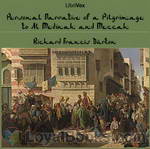 Personal Narrative of a Pilgrimage to Al-madinah and Meccah
Personal Narrative of a Pilgrimage to Al-madinah and Meccah
Sir Richard Francis Burton (1821 – 1890) was an English explorer, translator, writer, soldier, orientalist, ethnologist, linguist, poet, hypnotist, fencer and diplomat. He was known for his travels and explorations within Asia and Africa as well as his extraordinary knowledge of languages and cultures. According to one count, he spoke 29 European, Asian, and African languages.Burton's best-known achievements include traveling in disguise to Mecca, The Book of One Thousand Nights and A Night, an... | |
By: Peter H. Ditchfield (1854-1930) | |
|---|---|
 Old English Sports, Pastimes and Customs
Old English Sports, Pastimes and Customs
| |
By: Richard Francis Burton (1821-1890) | |
|---|---|
 Vikram and the Vampire; Classic Hindu Tales of Adventure, Magic, and Romance
Vikram and the Vampire; Classic Hindu Tales of Adventure, Magic, and Romance
| |
By: Peter H. Ditchfield (1854-1930) | |
|---|---|
 English Villages
English Villages
| |
By: Richard Francis Burton (1821-1890) | |
|---|---|
 First Footsteps in East Africa
First Footsteps in East Africa
| |
By: Peter H. Ditchfield (1854-1930) | |
|---|---|
 Memorials of Old London Volume I
Memorials of Old London Volume I
| |
By: Richard Francis Burton (1821-1890) | |
|---|---|
 Two Trips to Gorilla Land and the Cataracts of the Congo Volume 1
Two Trips to Gorilla Land and the Cataracts of the Congo Volume 1
| |
 The Kasidah of Haji Abdu El-Yezdi
The Kasidah of Haji Abdu El-Yezdi
| |
By: Peter H. Ditchfield (1854-1930) | |
|---|---|
 Books Fatal to Their Authors
Books Fatal to Their Authors
This is a collection of stories of authors who have lost their fortunes and sometimes their lives after writing a book. The liberty of a person's conscience was unknown in the sixteenth and seventeenth centuries; Why should a man be drawn and quartered for writing what we know is the truth? What must it have been like to have lived in that era. At the time it was dangerous to say that the earth went around the sun and many other theories were treated in the same way. | |
By: Richard Francis Burton (1821-1890) | |
|---|---|
 The Land of Midian — Volume 1
The Land of Midian — Volume 1
| |
 To the Gold Coast for Gold A Personal Narrative in Two Volumes.—Volume I
To the Gold Coast for Gold A Personal Narrative in Two Volumes.—Volume I
| |
By: Peter H. Ditchfield (1854-1930) | |
|---|---|
 The Parish Clerk
The Parish Clerk
| |
By: Nennius | |
|---|---|
 History of the Britons (Historia Brittonum)
History of the Britons (Historia Brittonum)
Although the origin of this book is much debated it remains, perhaps, one of the earliest recorded histories of Britain. It was believed that Nennius wrote the book around 796AD. If indeed he wrote this record, Nennius is recognised as being a teller, and embellisher, of historic characters and events.This book remains notable however, as one of the earliest that mention Arthur (The King of Arthurian legend). | |
By: Donald Alexander Mackenzie (1873-1936) | |
|---|---|
 Myths and Legends: Myths of Babylonia and Assyria
Myths and Legends: Myths of Babylonia and Assyria
Donald Alexander Mackenzie was a Scottish journalist and prolific writer on religion, mythology and anthropology in the early 20th century. His works included Indian Myth and Legend, Celtic Folklore and Myths of China and Japan.As well as writing books, articles and poems, he often gave lectures, and also broadcast talks on Celtic mythology.This volume deals with the myths and legends of Babylonia and Assyria, and as these reflect the civilization in which they developed, a historical narrative has been provided, beginning with the early Sumerian Age and concluding with the periods of the Persian and Grecian Empires... | |
 Elves and Heroes
Elves and Heroes
This volume describes, in verse, the mythical creatures and people of ancient Scotland. It also includes explanatory notes about about the characters and folk tales that inspired the author's poetry. (Introduction by Matthew Reece) | |
By: Lagerlöf, Selma (1858-1940) | |
|---|---|
 The Treasure
The Treasure
Selma Lagerlöf was born in Vaermland, Sweden, in 1858 and enjoyed a long and very successful career as a writer, receiving the Nobel-Prize in Literature in 1909. She died in Vaermland in 1940. The Treasure (Herr Arnes penningar) is a fairly short Novel, both a Drama and a Ghost Story. Published in 1904 and the English translation in 1923. The story is set in Bohuslaen on the West coast of Sweden in the middle of the 16th Century. Herr Arne, the old Parson in Solberga and all his household are brutally murdered, and his great Treasure stolen... | |
By: Madame de La Fayette (1634-1693) | |
|---|---|
 The Princess of Cleves
The Princess of Cleves
| |
 The Princess De Montpensier
The Princess De Montpensier
| |
By: Poul William Anderson (1926-2001) | |
|---|---|
 The Valor of Cappen Varra
The Valor of Cappen Varra
| |
 Duel on Syrtis
Duel on Syrtis
| |
By: Baron Paul Henri Thiry d'Holbach (1723-1789) | |
|---|---|
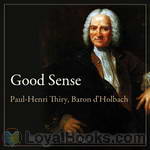 Good Sense
Good Sense
In 1770, Baron D'Holbach published his masterpiece, "Systeme de la Nature", which for a long time passed as the posthumous work of M. de Mirabaud. That text-book of "Atheistical Philosophy" caused a great sensation, and two years later, 1772, the Baron published this excellent abridgment of it, freed from arbitrary ideas; and by its clearness of expression, facility, and precision of style, rendered it most suitable for the average student. This text is based on an undated English translation of "Le Bon Sens" published c. 1900. The name of the translator was not stated. | |
By: Azel Ames (1845-1908) | |
|---|---|
 The Mayflower and Her Log; July 15, 1620-May 6, 1621
The Mayflower and Her Log; July 15, 1620-May 6, 1621
| |
By: Alfred, Lord Tennyson (1809-1892) | |
|---|---|
 Idylls of the King
Idylls of the King
Idylls of the King, published between 1856 and 1885, is a cycle of twelve narrative poems by the English poet Alfred, Lord Tennyson which retells the legend of King Arthur, his knights, his love for Guinevere and her tragic betrayal of him, and the rise and fall of Arthur's kingdom. The whole work recounts Arthur's attempt and failure to lift up mankind and create a perfect kingdom, from his coming to power to his death at the hands of the traitor Mordred. Individual poems detail the deeds of various knights, including Lancelot, Geraint, Galahad, and Balin and Balan, and also Merlin and the Lady of the Lake. | |
 The Princess
The Princess
The Princess is a serio-comic blank verse narrative poem, written by Alfred Tennyson, published in 1847. The poem tells the story of an heroic princess who forswears the world of men and founds a women's university where men are forbidden to enter. The prince to whom she was betrothed in infancy enters the university with two friends, disguised as women students. They are discovered and flee, but eventually they fight a battle for the princess's hand. | |
By: Alfred Tennyson Tennyson (1809-1892) | |
|---|---|
 Becket and other plays
Becket and other plays
| |
 Lady Clare
Lady Clare
| |
 The Last Tournament
The Last Tournament
| |
 Queen Mary and Harold
Queen Mary and Harold
| |
By: T. H. Pardo de Tavera (1857-1925) | |
|---|---|
 The Medicinal Plants of the Philippines
The Medicinal Plants of the Philippines
| |
 The Legacy of Ignorantism
The Legacy of Ignorantism
| |
By: Glenn D. Bradley (1884-1930) | |
|---|---|
 The Story of the Pony Express
The Story of the Pony Express
The Story of the Pony Express offers an in depth account behind the need for a mail route to connect the eastern U.S. with the rapidly populating west coast following the gold rush of California, the springing up of lumber camps, and all incidental needs arising from the settling of the western frontier. Here we learn of the inception of the Pony Express, its formation, successes, failures, facts, statistics, combined with many anecdotes and names of the people who were an integral part of this incredible entity which lasted but less than two years, yet was instrumental in the successful settlement of two thirds of the land mass comprising the expanding country... | |
By: Mór Jókai (1825-1904) | |
|---|---|
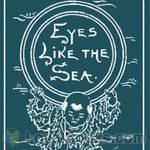 Eyes Like the Sea
Eyes Like the Sea
He was a painter, a poet, a novelist. He lived during the Hungarian revolution and his love of freedom meant his life was often in peril. She was his first love, this girl with the eyes like the sea. She was at heart noble, good and loving. What an excellent lady might have been made out of this woman, if she had only met with a husband who, in the most ordinary acceptance of the word, had been a good fellow, as is really the case with about nine men out of every ten. But she always managed to draw the unlucky tenth out of the urn of destiny... | |
 'Midst the Wild Carpathians
'Midst the Wild Carpathians
| |
 Black Diamonds
Black Diamonds
| |
 Tales from Jókai
Tales from Jókai
Móric Jókay de Ásva, known as Mór Jókai or Maurus Jokai, was a Hungarian dramatist and novelist. He was a very prolific writer from an early age and wrote hundreds of novels, novellas, and short stories in his lifetime. The nine stories in this selection tell about hard times in Eastern Europe, especially in Hungary (Jokai was involved in the Hungarian uprising of 1848), as well as of ancient superstitions and folk lore. In the novella "The City of the Beast", Jokai gives his version of the sinking of Atlantis. | |
 The Golden Age in Transylvania
The Golden Age in Transylvania
| |